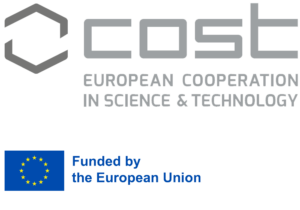Special Issue “Lessons on Building More Sustainable Rural Societies: Youth and Mobility”
A special issue of Sustainability (ISSN 2071-1050). This special issue belongs to the section “Sustainable Urban and Rural Development“.
Special Issue Information
Dear colleagues,
Mobility is a people’s need and is one of fundamental and important characteristics of human activities, as it fulfils the basic need of going from one location to the other. Mobility enables social, cultural, political, and economic activities to take place. Mobility is the recurring aspect where transportation has its most significant societal impacts (Rodrigue, 2020). However, mobility in rural areas and their impacts to social inclusion and rural development is a phenomenon that have been poorly studied until today. One example is the study of international migration (either economic or forced) to rural areas (European Commission, 2019). Mobility could be more constrained for some social groups, but also for some geographical areas. Challenges on mobility and youth have widely been explored in urban areas but much less explored with regard to rurality and its consequences for rural development and sustainability. In recent years, discussions on three intersectional topics, such as rurality, youth, and mobility, are at the forefront of the debate about sustainable rural development and the 2030 agenda adopted by the United Nations.
In this Special Issue, we encourage researchers to submit articles connected to one or various topics of the abovementioned intersectionality. We expect to receive theoretical, methodological, and empirical contributions on (but not only) topics related to:
- How youth outgoing migration affects aging and sustainability in rural areas;
- Rural youth not in education nor in employment;
- How youth internal migration contributes to rural sustainability;
- What type of policies or practices help youth to stay in rural areas;
- How youth migrants and asylum seekers are settled and what challenges they face;
- Exploring the key issues affecting mobility of youth in rural areas;
- Links between mobility and lack of employment, education, and training in rural areas;
- Strategies for improving rural mobility of youth;
- Transportation and commuting strategies and challenges for rural areas that are relevant for youth inclusion and sustainability;
- How constrained transportation options could lead to transportation disadvantage and social exclusion of youth in rural areas;
- Limited accessibility in rural areas and its impact on youth everyday lives.
The scope of this Special Issue is to provide a platform for researchers to share their research work on the field of youth mobility and rurality, including aspects of migrations, transportation, commuting, rural development, social exclusion, and inclusion.
References:
European Commission (2019). Migration in EU rural areas. Luxembourg: JRC Science Hub, https://publications.jrc.ec.europa.eu/repository/bitstream/JRC116919 01/10/2020
Rodrigue, J.-P., 2020: The geography of transport systems, https://transportgeography.org/, 29/09/2020
Dr. Slaven Gasparovic
Dr. Òscar Prieto-Flores
Guest Editors
Keywords
youth, mobility, outgoing and incoming migration, transportation in rural areas, accessibility, commuting, rural areas, rurality, rural development, NEET, sustainability, social exclusion, social inclusion
Published Papers (10 papers)
Download All Papers
Editorial: Lessons on Building More Sustainable Rural Societies: Youth and Mobility (Slaven Gasparovic, Òscar Prieto-Flores)
Sustainability 2021, 13(18), 10370; https://doi.org/10.3390/su131810370 – 17 Sep 2021
![]()

